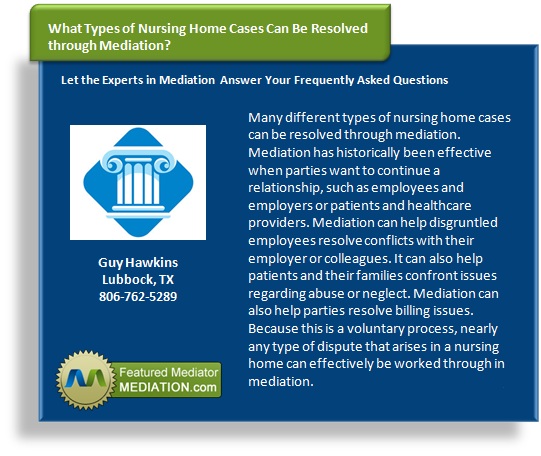 Medicare disputes may arise when services are not provided under Medicare, billing issues are present, or an application is denied. Rather than drawing out the process through litigation, parties can agree to mediate their issue. Some ways that mediation can help with these types of disputes include:
Medicare disputes may arise when services are not provided under Medicare, billing issues are present, or an application is denied. Rather than drawing out the process through litigation, parties can agree to mediate their issue. Some ways that mediation can help with these types of disputes include:
Clear Up Misunderstandings
Oftentimes, patients or their families may be confused about eligibility criteria. Mediating a Medicare dispute can help the parties communicate better. Reasons for denial may be explained. In some situations, there may not have been enough information or the wrong patient may have been billed. Mediating – rather than litigating – the dispute can help clear up these misunderstandings. The mediator can flutter between each party and deliver information in a compassionate and professional manner.
Faster Response
Dragging out an issue in litigation can potentially take years to resolve. Through mediation, the process is expedited. Problems can be resolved much more quickly, helping to avoid periods of non-coverage or paying for necessary services.
Guaranteed Resolution
In mediation, if the parties reach an agreement, this agreement becomes a binding contract. Therefore, the patient does not have to worry that this agreement will be reneged.
Maintained Control
The parties maintain control when they decide to mediate their case. They do not have to agree to any settlement that they do not like. However, they have great latitude to reach flexible terms. They can agree to any legal resolution. In litigation, the judge makes the final decision. This often takes a great degree of control away from the parties.
Creative Solutions
If a judge makes a decision in a case, he or she is usually limited to the legal relief that can be provided. In contrast, parties who mediate their dispute can come up with flexible and creative solutions.






 Families who have a loved one in a nursing home may wind up in a dispute with a nursing home over billing issues, care provided, services, financial matters or concerns regarding abuse or neglect. Mediation is a cost-effective alternative to filing a lawsuit against a nursing home and can provide several advantages to parties.
Families who have a loved one in a nursing home may wind up in a dispute with a nursing home over billing issues, care provided, services, financial matters or concerns regarding abuse or neglect. Mediation is a cost-effective alternative to filing a lawsuit against a nursing home and can provide several advantages to parties. If you have a long term disability care dispute, mediation provides a number of key benefits that you may wish to consider before deciding to litigate your case. Here are some of the key reasons to consider resolving this matter through mediation.
If you have a long term disability care dispute, mediation provides a number of key benefits that you may wish to consider before deciding to litigate your case. Here are some of the key reasons to consider resolving this matter through mediation.
